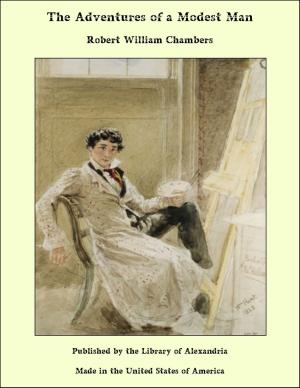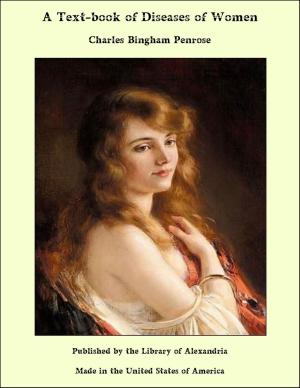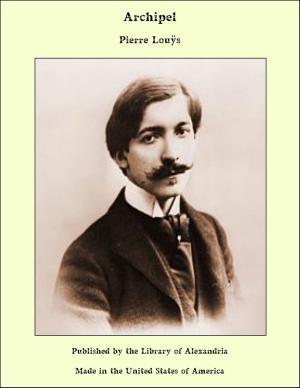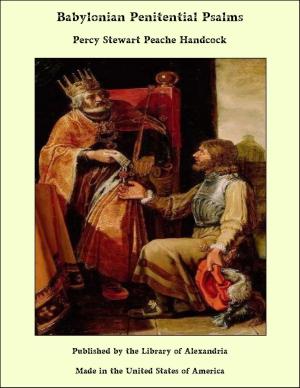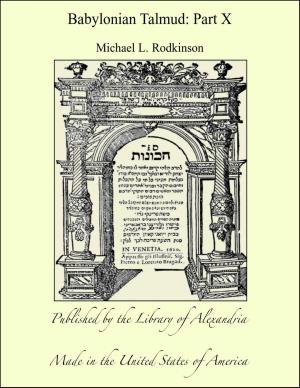The Story of my Struggles: The Memoirs of Arminius Vambéry (Complete)
Nonfiction, Religion & Spirituality, New Age, History, Fiction & Literature| Author: | Arminius Vambery | ISBN: | 9781465624765 |
| Publisher: | Library of Alexandria | Publication: | March 8, 2015 |
| Imprint: | Language: | English |
| Author: | Arminius Vambery |
| ISBN: | 9781465624765 |
| Publisher: | Library of Alexandria |
| Publication: | March 8, 2015 |
| Imprint: | |
| Language: | English |
My visit to my home was very pleasant; instead of the cold surroundings I had been used to among strangers, I now met on all sides loving glances from my brothers and sisters, and more especially from my mother, who was proud of the son who had already earned eight bright silver florins. She entertained the greatest hopes as to the result of my future studies and saw me in imagination a country doctor sent for by all the villagers for miles around, handsome fees pouring into his pockets; in fact, in time a rich man. In one word, the learning displayed by her first husband was always present to her mind, and she eagerly sought in me all the qualities and talents he had possessed. Had it depended upon my mother I should have started for St. Georghen at once, so as to be able to begin my studies at the Latin school in October as soon as the term commenced. But it was finally decided that I was to stay at home till I had passed from childhood to youth, which takes place in Jewish families at the age of thirteen and is celebrated by the Feast of Bar Mitzva. So I stayed on, and by degrees got used to the idea of having to leave home for good in a short time. On the occasion of this Feast of Bar Mitzva the youth who is to enter the ranks of the Orthodox Jews must hold a public discourse on some religious subject, and is admitted to the reading of the Thora in the synagogue, and this symbolical feast, which marks the period at which he leaves childhood behind him and enters youth, is very beautiful. An entertainment is given, to which all his friends of the same age are invited; in the centre of the table is a large basket made of a kind of baked dough; this is filled with rods made of pastry, which are distributed at dessert amongst the boys and eaten by them as a sign that they will not be needed for the future. My mother shed tears of joy at this feast, and during my discourse she imagined she heard my father speaking, and more than once sobbed out, "He is sure to be happy, for his father is praying for him in Paradise." Strange to say, the whole ceremony made little impression on me. My one desire was to give my mother pleasure and win the admiration of my hearers; but the religious part of the ceremony did not interest me much, for the influence which the orthodox Jewish faith had on me as a child had diminished through my having read German books. I was not yet a sceptic, but the fear of overstepping the ritual laws had disappeared. Pork and Christian food no longer seemed poison to me, and with the gradual breaking away of the barriers the sanctuary of my faith was more exposed to the outward attacks made upon it. The first attack shook it without destroying it entirely; my peace of mind was hardly disturbed; not, for instance, like Renan's, who, in his twentieth year, rushed into the cell of his friend at midnight, exclaiming, "Oh, I have become a doubter!"
My visit to my home was very pleasant; instead of the cold surroundings I had been used to among strangers, I now met on all sides loving glances from my brothers and sisters, and more especially from my mother, who was proud of the son who had already earned eight bright silver florins. She entertained the greatest hopes as to the result of my future studies and saw me in imagination a country doctor sent for by all the villagers for miles around, handsome fees pouring into his pockets; in fact, in time a rich man. In one word, the learning displayed by her first husband was always present to her mind, and she eagerly sought in me all the qualities and talents he had possessed. Had it depended upon my mother I should have started for St. Georghen at once, so as to be able to begin my studies at the Latin school in October as soon as the term commenced. But it was finally decided that I was to stay at home till I had passed from childhood to youth, which takes place in Jewish families at the age of thirteen and is celebrated by the Feast of Bar Mitzva. So I stayed on, and by degrees got used to the idea of having to leave home for good in a short time. On the occasion of this Feast of Bar Mitzva the youth who is to enter the ranks of the Orthodox Jews must hold a public discourse on some religious subject, and is admitted to the reading of the Thora in the synagogue, and this symbolical feast, which marks the period at which he leaves childhood behind him and enters youth, is very beautiful. An entertainment is given, to which all his friends of the same age are invited; in the centre of the table is a large basket made of a kind of baked dough; this is filled with rods made of pastry, which are distributed at dessert amongst the boys and eaten by them as a sign that they will not be needed for the future. My mother shed tears of joy at this feast, and during my discourse she imagined she heard my father speaking, and more than once sobbed out, "He is sure to be happy, for his father is praying for him in Paradise." Strange to say, the whole ceremony made little impression on me. My one desire was to give my mother pleasure and win the admiration of my hearers; but the religious part of the ceremony did not interest me much, for the influence which the orthodox Jewish faith had on me as a child had diminished through my having read German books. I was not yet a sceptic, but the fear of overstepping the ritual laws had disappeared. Pork and Christian food no longer seemed poison to me, and with the gradual breaking away of the barriers the sanctuary of my faith was more exposed to the outward attacks made upon it. The first attack shook it without destroying it entirely; my peace of mind was hardly disturbed; not, for instance, like Renan's, who, in his twentieth year, rushed into the cell of his friend at midnight, exclaiming, "Oh, I have become a doubter!"



